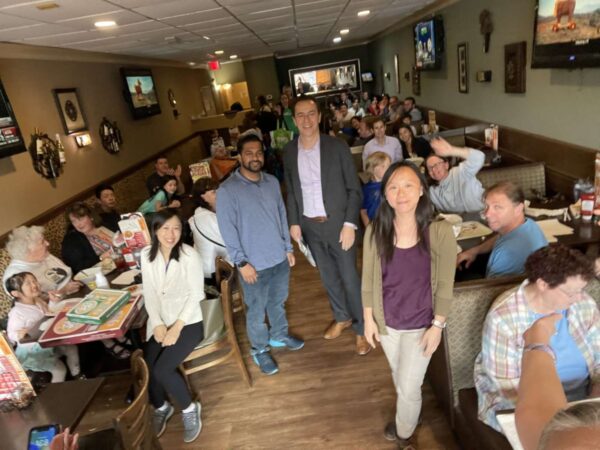
The Pimmit Hills neighborhood has officially reached the “let’s put on a show” stage of its battle against a planned Washington Gas pipeline.
Faced with escalating legal fees, residents have banded together to stage a “Protect Pimmit Hills Hoedown” benefit concert from 5-7 p.m. on Saturday (June 3) as a fundraiser for four of their neighbors who were sued by the utility company.
The concert will be held at Pimmit Barn (1845 Cherri Drive) with “limited” food available for sale from the food truck, The Big Cheese. Providing the music will be the Pimmit Hillbillies, a band that neighborhood residents formed for this occasion.
“We hope this concert helps reinforce our community spirit by getting neighbors out and meeting each other to join fight this project that affects us all,” resident guitarist Tom Gillespie said. “We will bond over great tunes, grilled cheese sandwiches, and chocolate chip cookies while we talk about our ongoing pipeline battle.”
Filed by Washington Gas on March 3, 2022, the lawsuit challenges a Fairfax County Board of Zoning Appeals ruling that a special exception permit and 2232 review are required for the natural gas pipeline, the last phase of the Strip 1 Tysons project to upgrade about five miles of pipe from Tyco Road to Pimmit Drive.
A bench trial in Fairfax County Circuit Court had been scheduled for April 25 and 26, but the judge postponed it to the first week of September after the Virginia Supreme Court voided the zoning ordinance that guided the BZA’s decision, according to Christina Chen Zinner, one of the Pimmit Hills residents involved in the case.
Though the ordinance known as zMOD was readopted on May 9, it remains unclear how the Supreme Court’s ruling affected zoning decisions made during the two years when the code was initially in effect.
Because of the trial delay, Zinner and her fellow defendants shared earlier this month that they need to raise an additional $20,000 to cover their legal costs, which have climbed to $45,000. With the help of a recent neighborhood pizza party, they’ve made progress on that goal, raising $38,700 through Gofundme.
The Pimmit Hillbillies hope to finish the job. The band emerged from a virtual meeting, where residents brainstormed fundraising ideas.
“Knowing that I like to sing and play guitar, and compose my own songs, [my wife Stephanie] challenged me during the meeting to compose a protest song to help us promote our Gofundme drive,” Gillespie recalled. “I feel so passionate about fighting this pipeline that the lyrics and notes just flowed out of me.” Read More
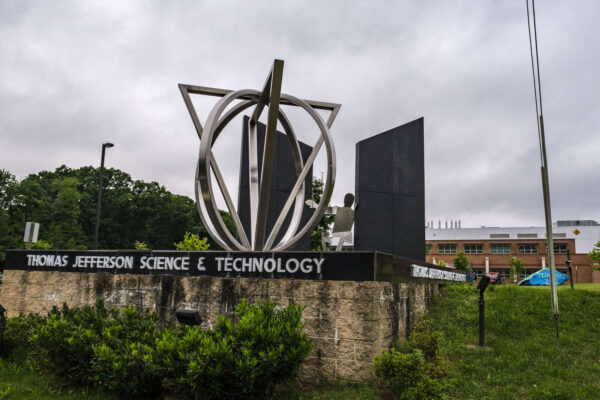
(Updated at 4:20 p.m.) The current admissions process for Thomas Jefferson High School for Science and Technology (TJ) does not discriminate against Asian American students, the U.S. Court of Appeals for the Fourth Circuit has ruled.
A majority of the three-judge panel backed the Fairfax County School Board’s argument in support of admissions policy changes intended to increase diversity at the prestigious magnet school, reversing a lower court’s ruling that sided with the Coalition for TJ.
The advocacy group filed a lawsuit against the school board in March 2021, arguing that the changes adopted in 2020 were intended to reduce the number of Asian students at TJ in violation of the Constitution.
In an opinion published today (Tuesday), Circuit Judge Robert King says the Coalition failed to prove that the school board intended to discriminate against Asian students, who have, in fact, seen “greater success in securing admission to TJ under the policy than students from any other racial or ethnic group.”
“After thorough consideration of the record and the appellate contentions, we are satisfied that the challenged admissions policy does not disparately impact Asian American students and that the Coalition cannot establish that the Board adopted its race-neutral policy with any discriminatory intent,” King wrote.
Since taking effect with the Class of 2025, the admissions changes — which included dropping a required test and application fee and taking into account a student’s economic, special education or English-learner status — have resulted in offers going to a broader range of students in terms of race, geography and income.
The Class of 2025 was the first in a decade to accept students from all middle schools. It also saw an uptick in Black, Hispanic and economically disadvantaged students, Fairfax County Public Schools reported. Both that year and last year, Asian students still received a majority of offers.
“The court reached the correct decision, and we firmly believe this admission plan is fair and gives qualified applicants at every middle school a fair chance of a seat at TJ,” John Foster, the school board’s division counsel, said in a statement. “We look forward to offering seats to a new group of remarkable and incredibly well-qualified young scholars in the years to come.”
U.S. District Judge Claude Hilton had ruled in February 2022 that Asian students were “disproportionately harmed” by the admissions changes, which he said were implemented in a “remarkably rushed and shoddy” process.
Hilton ordered that FCPS stop using the new policy, but the appeals court agreed to let it stay in place while the lawsuit continued.
While King said that Hilton’s judgment “went fatally awry” in not addressing how racial and ethnic groups other than Asians fared under the new policy, Circuit Judge Allison Rushing argued a dissenting opinion that the changes were “passed with discriminatory intent and disproportionately impact a particular racial group,” even if they appear race-neutral on paper.
“The twelve-member Board plainly stated its intention to craft an admissions policy for TJ that would reform the racial composition of the student body to reflect the racial demographics of the district,” she wrote.
The Coalition for TJ says it wasn’t surprised by the ruling and intends to take the case to the U.S. Supreme Court.
“We are disappointed by today’s ruling, but we are not discouraged,” Pacific Legal Foundation attorney Erin Wilcox, who has been representing the coalition, siad. “Discrimination against students based on their race is wrong and violates the Constitution’s guarantee of equal protection. We look forward to asking the Supreme Court to end this illegal practice once and for all.”
The Supreme Court is already considering a case on affirmative action in college admissions. Some universities have started to review their practices, with the mostly conservative justices expected to defy precedent by declaring race-conscious admissions unlawful.
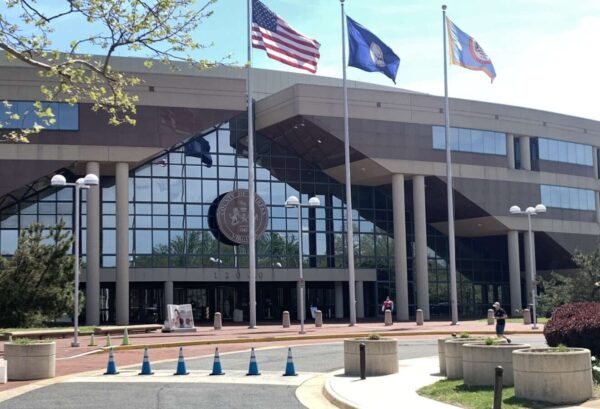
(Updated at 2:25 p.m.) Fairfax County officials are hoping to clear up a legal kerfuffle over its zoning ordinance, which was readopted last week after getting voided by the Virginia Supreme Court earlier this year.
Before readopting a modernized version of the zoning ordinance — known as zMod — on May 9, the county filed a petition for a rehearing in the Supreme Court case Berry v. Fairfax County Board of Supervisors.
The court struck down the ordinance on March 23 — nearly two years after it first took effect — because it was originally adopted during a virtual meeting and therefore violated the Virginia Freedom of Information Act.
The court argued that the county’s state of emergency rules for Covid only allowed virtual meetings on issues “necessary to ensure the continuation of essential functions and services,” which it said didn’t include updating a document last overhauled in the 1970s.
Most residents testifying at an in-person public hearing on zMOD’s readoption last week opposed the update.
Even though zMOD has now been reinstated, the county confirmed to FFXnow that it’s still pursuing the request for a rehearing in the Berry case.
“The Berry opinion was broadly framed and has potential implications that reach beyond zMOD,” a county spokesperson said. “The decision affects numerous localities, among many other public bodies, across the Commonwealth who conducted electronic meetings in good faith reliance on the relevant state legislation to protect their residents during the pandemic.”
The petition argued that the Supreme Court’s opinion not only raised questions about close to two years of zoning actions, but also forced “every public body in the Commonwealth that met electronically during the pandemic…to examine its actions and speculate whether this Court would deem them ‘time-sensitive.'”
In the filing, the county argued that the board acted in “good faith” by holding virtual public meetings in the midst of the pandemic, and they were consistent with Virginia’s limits on public gatherings at the time, which had dropped to 10 people when the board authorized public hearings on zMOD in December 2020.
The county also argues that voiding zMod “casts doubt on years of pandemic-era decisions made in good faith reliance on the budget language.”
Walsh Colluci Lubeley & Walsh, a prominent law firm in the area that handles many Fairfax County land use applications, has also filed two amicus briefs on behalf of the Home Builders of Virginia, the Virginia Association for Commercial Real Estate and the Virginia Land Title Association.
They argue that the Supreme Court’s decision has “already had a significant adverse effect on local governments and private sector entities statewide.”
“The court’s reasoning has cast a cloud over a vast number of land use approvals and permits, not just in Fairfax County but throughout the Commonwealth,” one filing states, adding that “the number of applications potentially impacted by the court’s decision cannot be understated.”
The court could rehear the case if any of the seven justices determine there is good cause.
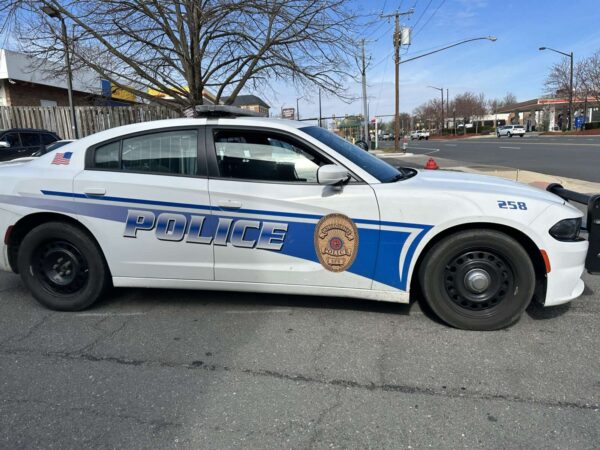
The federal government has agreed to pay $5 million to settle a civil lawsuit brought by the parents of McLean resident Bijan Ghaisar, who was shot and killed by two U.S. Park Police officers in Fort Hunt more than five years ago.
The settlement will allocate up to 25% of the total — or $1.25 million — to the family’s lawyers with the remaining money going directly to James and Kelly Ghaisar, according to court documents.
Officially approved by U.S. District Judge Claude Hilton after a hearing at the federal courthouse in Alexandria on Friday (April 28), the agreement states that it shouldn’t be interpreted as “an admission of liability or fault on the part of the United States.”
In a statement, the Ghaisars said their proceeds from the settlement will go to The Bijan Ghaisar Foundation — a nonprofit dedicated to addressing police brutality and helping victims of gun violence — “and other charitable causes.”
Despite agreeing to settle, the family said they “do not believe this is justice” and remain disappointed that federal prosecutors declined multiple times to pursue charges against officers Alejandro Amaya and Lucas Vinyard, who were only identified after the family filed the wrongful death lawsuit in 2018.
“We still believe, however, that accountability for Bijan’s murder is possible, somehow, sometime, and some way,” the family said. “We now shift our focus to fighting in Bijan’s name for other victims, and for all Americans, for accountability and prevention of police brutality.”
Statement from The Ghaisar Family on the settlement of the civil suit against the Federal government for Bijan Ghaisar's murder. #WeAreBijan pic.twitter.com/DaR8Kieffd
— Bijan Ghaisar (@WeAreBijan) April 28, 2023
Rep. Don Beyer, who represents Virginia’s 8th Congressional District, including McLean, called the settlement “the clearest admission to date that Bijan Ghaisar did not deserve to be shot and killed.”
“The officers who shot him showed reckless disregard for Bijan Ghaisar’s humanity,” Beyer said in a statement. “Yet, to this day no one has been held accountable for that act that left an unarmed young man dead, or for the unacceptable government stonewalling that compounded the Ghaisar family’s suffering and enraged the community I represent. This lawsuit is ending, but justice has never been done in this case.”
The DOJ settlement is the clearest admission to date that Bijan Ghaisar did not deserve to be shot and killed.
My thoughts go out to Kelly and James Ghaisar and their family. As their fight for reform and justice continues, I will continue to be their friend and ally. pic.twitter.com/hp9jhspZqh
— Rep. Don Beyer (@RepDonBeyer) April 28, 2023
The Department of the Interior, which includes the Park Police, didn’t return a request for comment by press time. The department’s Office of Inspector General is conducting an administrative investigation to determine whether Park Police policies were followed, according to the Washington Post. Read More
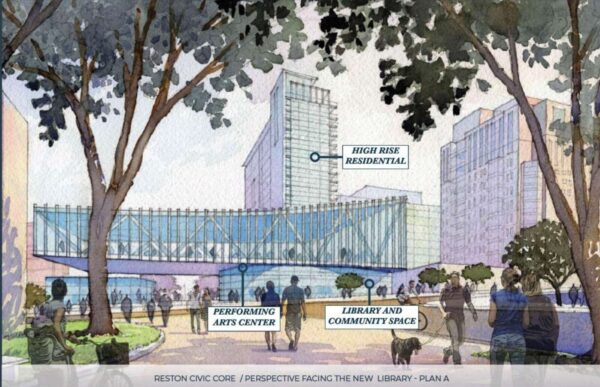
A developer that filed a plan for a new Reston Regional Library and affordable housing in the Reston Town Center North area is challenging Fairfax County’s handling of its procurement process in court.
The complaint, filed by Reston Civic Core LLC late last year, is being litigated even after developer Foulger-Pratt withdrew its offer of a public-private partnership for the same area — a move that leaves no immediate option for the redevelopment.
Foulger-Pratt offered an unsolicited proposal in October 2021 under the Public-Private Education Facilities and Infrastructure Act to redevelop two properties with up to 350 affordable apartments and a new library on land owned by the Fairfax County Redevelopment and Housing Authority.
The county and FCHRA declined to comment, given that the issue is under active litigation.
“As a matter of policy, we don’t comment on matters in litigation,” said Linda Hoffman, a county spokeswoman.
In addition to retaining 30 units at Bowman Towne Court, Norton Scott’s plan called for 324 affordable housing units and a new library on mostly county-owned property next to the Bowman Towne Center property. It also included a public plaza, homeless shelter, performing arts amenities, and above-ground parking for the Hunter Mill District Supervisor’s Office and the police department.
The complaint formally alleges that the county violated Dillon’s rule and urges the county to accept its application for consideration. It also calls on the court to cancel the interim agreement with Foulger-Pratt — which has since been canned.
The county issued a call for competing proposals — as required by law. Norton Scott’s competing plan was rejected.
The county moved to sign an interim agreement with Foulger-Pratt in July, but the agreement was voided in February. Foulger-Pratt cited “significantly higher construction costs and recent interest rate hikes” as the primary reasons for scrapping the proposal.
Norton Scott argues that the because the proposal publicly posted by the county had 74 of 188 pages fully redacted, it barred the developer from developing an understanding of its competition.
“As a result of the heavily-redacted proposal, it was impossible for potential offers to gain a clear understanding of what the county sought when it invited competing proposals of the project,” the complaint says. “The lack of transparency runs counter to the principles of open competition and access to information that are at the foundation of public procurements.”
The developer also alleges that the county did not not formally reject its proposal and instead “determined that the proposal will not be accepted for detailed review,” according to legal documents.
“Under the PPEA, after accepting the proposal or consideration, the county was without authority to reverse course and not accept the proposal for consideration,” the complaint states.
At a later point, the county then stated the proposal was “ineligible for review.”
A task force with various stakeholders is currently examining key issues in Reston Town Center North.
Chelsea Rao, a senior vice president with Norton Scott, said it seems that the development’s team solution is not being considered at all.
“It seems silly that there is a task force looking for a solution that is not considering the option we have proposed,” Rao said.
The case is currently in the discovery phase.
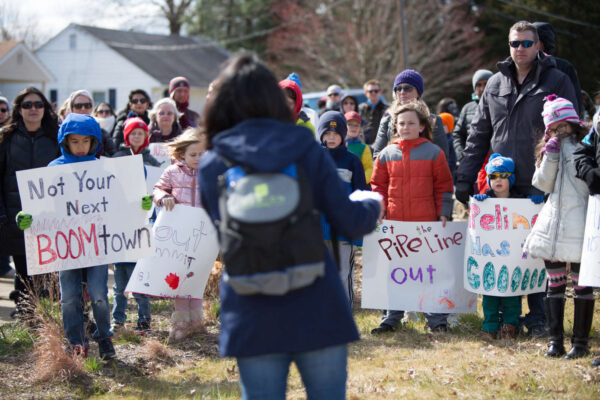
Cheers went up after the Fairfax County Board of Zoning Appeals (BZA) ruled last year that a natural gas pipeline planned through the residential neighborhood of Pimmit Hills will need to be reviewed and approved by the county.
However, even when proposing that decision on Feb. 2, 2022 after a multi-day public hearing, BZA Vice Chairman James Hart acknowedged that the case over the sixth phase of Washington Gas’ Strip 1 Tysons project was likely headed to court.
That court date will arrive this month. The utility company’s lawsuit seeking to vacate the board’s decision will go before a Fairfax County Circuit Court judge for a trial on April 25 and 26, spurring Pimmit Hills residents to rally together once again in opposition to the pipeline.
“We’re concerned citizens, you know. It’s our neighborhoods, our streets, our children, our playgrounds, our schools,” said Kurt Iselt, one of four residents named as defendants in the lawsuit after they brought the case to the BZA.
The challenged pipeline segment is the last stage of a push by Washington Gas to upgrade its natural gas infrastructure in the Tysons area, replacing a 14-inch-wide line with a 2-feet-wide, high-pressure one.
In the works since 2012, the overall project will span approximately five miles from Tyco Road to a regulator station at the Pimmit Drive and Route 7 (Leesburg Pike) intersection.
Phase six will be routed from Peabody Drive to Cherri Drive and Pimmit Drive to Route 7 — right through the heart of Pimmit Hills. Washington Gas had considered an alternate route along Magarity Road and Route 7 but said construction would take longer and bring more disruptions.
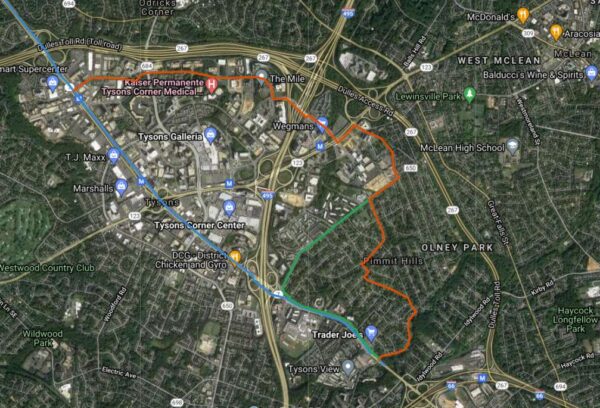
After initially denying it twice, the Virginia Department of Transportation approved a permit for the project in 2019, despite opposition from residents and local and state politicians representing the area.
At the request of Islet and fellow residents Christina Chen Zinner, Sarah Ellis and Lillian Whitesell, a county zoning administrator reviewed the project and decided it qualified as a “light utility facility” exempt from local regulation per the county’s zoning ordinance (page 241), which hadn’t yet been struck down.
The lawsuit by Washington Gas argues that the BZA lacked the authority to partially overturn the zoning administrator’s determination and require the project to obtain a special exception permit and undergo a 2232 review.
“Phase 6 is part of [the] Petitioner’s ‘ordinary distribution system’ that delivers natural gas to its customers and located in a VDOT right-of-way. Accordingly, Phase 6 is exempt from the zoning ordinance,” the petition filed on March 3, 2022 states, asserting that the BZA’s decision violated “decades of precedent” and state law. Read More
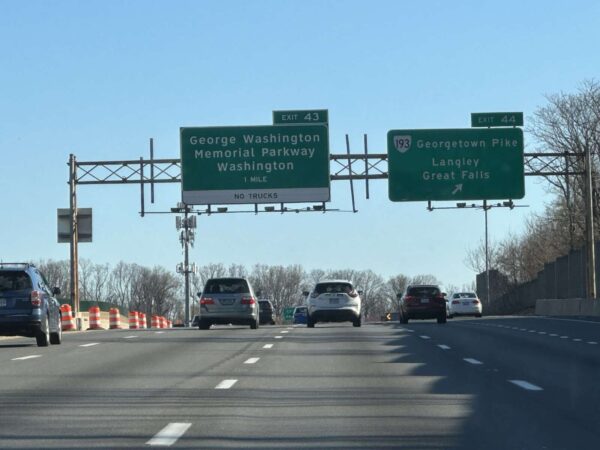
(Updated at 2:10 p.m.) Construction on the widening of the Capital Beltway (I-495) can continue while a lawsuit filed by McLean residents works its way through the court system, a federal judge ruled this morning (Friday).
The Northern Virginia Citizens Association had urged U.S. District Judge Leonie M. Brinkema to issue a preliminary injunction against the project that would halt all work until further environmental analysis is conducted.
The ruling, which came after a 10 a.m. hearing at the district court in Alexandria, gave an initial victory to federal and state transportation officials and express lanes operator Transurban, who have argued that the additional review sought by residents is unnecessary.
“We remain confident that this project is in compliance of all environmental regulations and associated requirements and approvals, Transurban Director of Corporate Affairs and Marketing Tanya Sheres said in a statement to FFXnow. “Alongside our project partners, we continue to focus on minimizing impacts to communities as we work to deliver the expanded travel choices, environmental enhancements, and improved safety that the more than 230,000 daily travelers of this corridor are relying upon.”
Filed on March 16, the NOVA Citizens Association’s complaint detailed health and environmental impacts of construction on the I-495 Northern Extension (495 NEXT) project, which is adding 2.5 miles of express lanes from the Dulles Toll Road in Tysons past the George Washington Memorial Parkway in McLean.
The Federal Highway Administration approved an environmental assessment for the project in 2021, finding that it would not have a significant impact and allowing it to proceed.
However, the NOVA Citizens Association says that subsequent design changes to stormwater facilities and ramps at the GW Parkway interchange should’ve necessitated another review with an opportunity for public input.
“Defendants’ activities will irreparably damage Plaintiff’s neighborhood and the surrounding human and natural environment in violation of federal law,” lawyers for the association wrote in a memo on their injunction request. “The Project’s adverse effects already vastly exceed the scope of what the Virginia Department of Transportation (“VDOT”) submitted and the Federal Highway Administration (“FHWA”) approved.”
In declarations opposing an injunction, VDOT and FHWA officials argue that the changes to the GW Parkway design reduced its impact on nearby residential properties and were accounted for in a Interchange Justification Report Addendum approved by FHWA on Jan. 14, 2022.
“The revised configuration of the GWMP interchange lessened the overall impacts of the Project by eliminating conflicts with large utility transmission towers and reducing the need for right-of-way acquisition,” VDOT Northern Virginia Megaprojects Director Susan Shaw said.
According to Shaw, a relocation of ponds by the GW Parkway interchange improved stormwater management, including avoiding work adjacent to the Potomac River, and the changes stayed within the scope established by the completed environmental assessment.
A one-year delay of construction on 495 NEXT, which broke ground in March 2022, would cost VDOT an additional $16.4 million in management and oversight costs, Shaw estimated. If the delay goes into a second year, another $17.2 million would be added to that bill.
“If the Project is enjoined, the current work would need to be suspended in its current condition, with accommodations as needed to ensure the safety of the traveling public,” Shaw wrote. “This would require the lane closures, concrete barriers, temporary environmental controls, to remain in place with all the traffic congestion and disruption those active work zone features create. The duration of construction impacts would be extended, such as noise, dust, traffic delays, and lack of full shoulders.”
Construction on 495 NEXT is currently projected to continue into 2026, with the new express lanes set to open later in 2025.
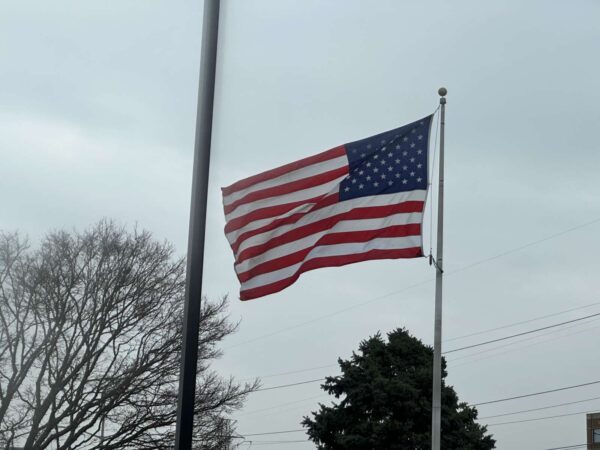
A day after neighboring Arlington County made waves by ending single-family exclusive zoning, Fairfax County saw its own zoning reforms reversed two years after they were approved.
The Virginia Supreme Court declared the county’s Zoning Ordinance Modification Project (zMOD) void yesterday (Thursday) because the new code was adopted at a mostly virtual meeting — a ruling could have consequences for other actions taken during the first years of the pandemic, as noted by Inside NoVA, which first reported the decision.
The county is now operating under its previous zoning ordinance, which had been in place since 1978, according to the zoning administration division’s website.
“We are currently evaluating the Virginia Supreme Court decision and considering our options,” Tony Castrilli, the county’s director of public affairs, said. “In the meantime, the 1978 Zoning Ordinance is presently in effect and available for reference on the County website.”
In a 29-page opinion, Justice Wesley Russell sided with four residents who argued that the Fairfax County Board of Supervisors violated the Virginia Freedom of Information Act’s open meeting requirements by not holding an in-person public hearing or vote.
The county contended that an ordinance adopted on April 14, 2020 gave it the flexibility to hold public meetings on the zoning update and other subjects electronically during the Covid state of emergency.
The Supreme Court disagreed that the ordinance allowed the county government to conduct all regular business electronically, finding that the zoning update doesn’t qualify as “necessary to ensure the continuation of essential functions and services.”
“The modification of a 40-year-old zoning ordinance after a five-year revision process does not satisfy this standard,” Russell wrote. “It is not a time-sensitive matter, and its adoption is not and was not necessary to allow the County to continue operations.”
The residents behind the lawsuit — David Berry, Carol Hawn, Helen Webb and Adrienne Whyte — filed a complaint in Fairfax County Circuit Court on March 5, 2021 seeking to prevent the board from adopting zMOD at a public hearing on March 9, 2021.
The circuit court denied the request and ultimately dismissed the complaint on Sept. 9, 2021, stating that it had been rendered moot by the adoption of zMOD on March 23, 2021 and that the county board’s emergency powers gave it the authority to act at an electronic meeting. Read More
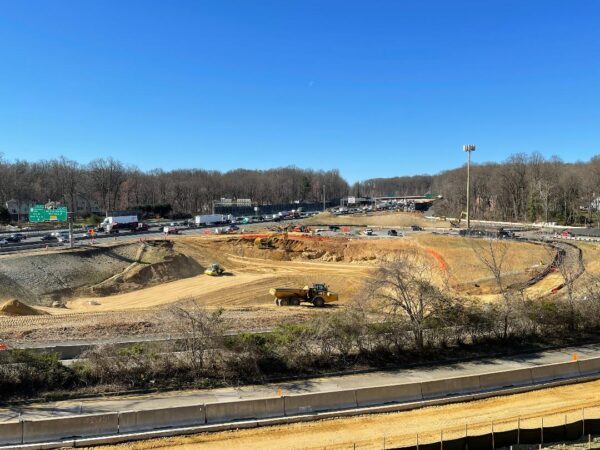
(Updated at 11:55 a.m.) A group of McLean residents opposed to the extension of the I-495 toll lanes past their neighborhoods have turned to the courts in a bid to halt the project, now in its second year of construction.
The Northern Virginia (NOVA) Citizens Association filed a lawsuit with the U.S. District Court in Alexandria on Thursday (March 16) alleging that major revisions to the project design violated federal law, resulting in “significant on-going environmental harms” to residents.
The Virginia Department of Transportation, Secretary of Transportation W. Sheppard Miller, the Federal Highway Administration (FHWA), private toll lanes operator Transurban, and Transurban subsidiary Capital Beltway Express LLC are named as defendants.
“As a result of Defendants’ actions, NOVA and its members are experiencing significant adverse environmental impacts caused by the Project,” the complaint says, arguing that the road construction and loss of trees will contribute to noise, light, air pollution, water quality, erosion and health issues.
In the works since 2018, the I-495 Northern Extension project (495 NEXT) is adding 2.5 miles of express lanes from the Dulles Toll Road in Tysons past the George Washington Memorial Parkway in McLean, reconfiguring many of the bridges and interchanges within that span.
The GW Parkway interchange has been a particular point of concern for the NOVA Citizens Association, whose members fear that their neighborhood along Live Oak Drive will be destroyed to accommodate planned ramps and stormwater management ponds.
According to the complaint, VDOT unveiled significant changes to the project design in September 2021 and June 2022 — months after the FHWA approved its environmental assessment, an evaluation of the project’s potential impact required by the National Environmental Policy Act (NEPA).
The changes — including a consolidation of stormwater facilities, a narrowing of Live Oak Drive to 22 feet wide, and the relocation of an I-495 Express Lanes exit ramp to the GW Parkway — were substantial enough that additional environmental review should’ve been conducted, the association contends.
“The major changes to the stormwater control plan, the expansion of impermeable surfaces, and the greatly expanded deforestation will result in a significant increase in the release of stormwater which is contaminated with pollutants onto the properties of members of the association,” the complaint says.
The complaint also raises concerns about the safety of narrowing Live Oak Drive, especially for kids traveling to Cooper Middle School and the nearby Langley Swim & Tennis Club, and a reported plan to place a 5G cell tower on one resident’s property.
In a Feb. 24 declaration supporting the complaint, Live Oak Drive residents Pritesh and Marisha Patel wrote that the noise and pollution from the 495 NEXT construction has caused “irreparable harm” to their family, particularly their 11-year-old son, who has asthma. Read More

When Fairfax County Public Schools resumes classes in January, students and staff may once again be required to wear face masks — but only around students with disabilities who request the accommodation.
Virginia settled a lawsuit last week with parents of 12 immunocompromised students who argued that the end of Covid-related face mask requirements in schools violated their right to a free, appropriate public education.
As part of the settlement, the state agreed that, if requested by a parent, schools must allow “some amount of required masking as a reasonable modification” under the Americans with Disabilities Act. The Virginia Department of Education was directed to send guidance on “peer masking” to the schools attended by students in the lawsuit, including Stenwood Elementary School in Dunn Loring.
“The health and well-being of our students and staff remain a top priority. FCPS is aware of this settlement and is currently assessing how it impacts operations,” FCPS said in a statement.
The settlement only directly applies to the specific schools attended by the plaintiffs’ kids, who have asthma, cystic fibrosis and other conditions that put them at high risk of getting severely sick if they contract COVID-19.
However, when announcing the settlement on Dec. 12, the ACLU of Virginia — one of several organizations representing the parents — expressed hope that it will signal to other schools that they should consider requiring masks when needed for students with disabilities as well.
“We’re hopeful that every school in Virginia will view this settlement as a sign that they should make similar accommodations for their students, even if they are not part of the case,” ACLU of Virginia Legal Director Eden Heilman said.
The complaint was filed in federal court in Charlottesville on Feb. 1, shortly after Gov. Glenn Youngkin’s executive order making masks optional in schools took effect.
FCPS and six other school districts sued Youngkin in an effort to block the order, arguing that universal masking was still necessary as the country was just starting to exit the biggest surge in COVID-19 cases of the pandemic.
That lawsuit was rendered moot once a bill requiring schools to allow parents to opt their kids out of wearing a mask became law on Feb. 16. FCPS made masks optional on March 1, though the school board filed a brief supporting the families who sued.
Acknowledging an initial court ruling from March, the settlement says the state law and executive order don’t prohibit schools from considering and fulfilling mask requirement requests to accommodate students with disabilities.
Under the agreement, schools are expected to look at alternatives, such as ventilation improvements or social distancing, before requiring masks. They must also “take every reasonable step” to ensure a student whose parents don’t want them to wear a mask doesn’t have to.
The settlement also required the state to pay $295,000 to cover the suing parents’ legal fees.
“This settlement is a step toward righting a wrong,” Tasha Nelson, one of the parents, said. “Children like mine should not be told they cannot participate safely in school or that they have to be segregated. They have a right to the same education as every other child. As adults, it’s our responsibility to make sure that we include everyone in our decisions and come up with solutions that provide equity in school.”
While Covid cases haven’t gotten close to last winter’s levels, they have been climbing over the past few weeks, with the Fairfax Health District averaging 260.3 cases per day for the preceding week, as of yesterday (Monday).
FCPS has reported a total of 5,969 cases among students and staff since this school year began on Aug. 22 — exceeding the 3,669 cases seen over the same time frame in 2021. Students are now on winter break until Jan. 3.
Photo via Mika Baumeister/Unsplash

